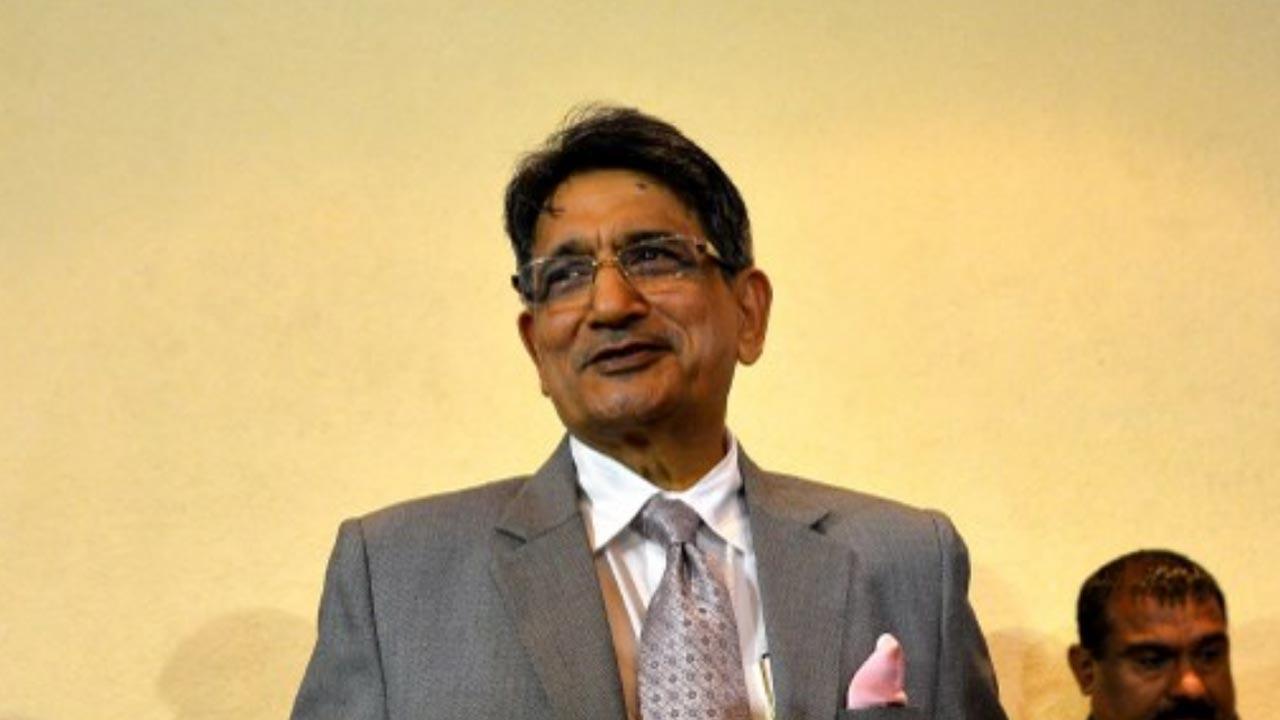Justice Mudgal, a retired Delhi High Court judge, was assisted by the then Additional Solicitor General of India, L. Nageswara Rao, and senior advocate and former cricket umpire Nilay Dutta. They were later joined by former Team India captain (and present BCCI President) Sourav Ganguly

Rajendra Mal Lodha during a press conference in New Delhi on July 14, 2015. Pic/AFP
If the betting scandal that rocked the Indian Premier League (IPL) led to one tangible action, it was the appointment of the Justice R.M. Lodha Committee by the Supreme Court of India on January 22, 2015.
ADVERTISEMENT
The committee was asked to recommend implementable actions to clean up the Board of Control for Cricket in India (BCCI), assess the quantum of punishment to be handed out to Gurunath Meiyappan, the then 'team principal' of the Chennai Super Kings, and former Rajasthan Royals co-owner Raj Kundra in the betting scandal, and study the role of sports business executive Sundar Raman. Justice Lodha submitted his report on July 14, 2015.
The Lodha Committee followed the Justice Mukul Mudgal Committee report on the allegations against Meiyappan, who's also the son-in-law of former BCCI chief N. Srinivasan, the helmsman of India Cements, which owns Chennai Super Kings, and Jaipur IPL Cricket Pvt. Ltd., parent company of the Rajasthan Royals, where Kundra held an 11.7 per cent stake.
Justice Mudgal, a retired Delhi High Court judge, was assisted by the then Additional Solicitor General of India, L. Nageswara Rao, and senior advocate and former cricket umpire Nilay Dutta. They were later joined by former Team India captain (and present BCCI President) Sourav Ganguly.
Following are the key recommendations of the Lodha Committee:
* The IPL Governing Council needs to be reconstituted with more autonomy, comprising not only representatives of the full members, but also of franchisees, players, and an independent auditor.
* A Governing Council with only nine members, comprising three ex-officio members (the secretary, treasurer and CEO of the BCCI), two representatives of the BCCI members to be elected by the General Body, two nominees of the franchisees, one nominee being the Comptroller and Auditor General's counsellor on the apex council and the other being a nominee of the players' association.
* According to this arrangement, four out of nine members of the IPL Governing Council were to be independent of the BCCI, thereby providing a much-needed autonomy and balance in management of the most lucrative enterprise of the Board.
* One of the two representatives of the members of BCCI elected by the General Body shall be the chairperson of the Governing Council.
* The nominees of the franchisees were to be rotated annually and no franchisee would be represented again until all the others had a turn.
* The committees / commissions to be appointed under IPL Regulations (Anti-Corruption Code, Code of Conduct, Operational Rules, and so on) ought to consist of members selected by a panel consisting of the ombudsman, the ethics officer and the CEO, and presided over by the ombudsman. This would ensure independence from the BCCI.
* The committee recommended a 15-day gap between the IPL and the national calendar.
* It noted that many of the ills of Indian cricket have their roots in the state associations and their lack of proper administration. The root cause for the problem was that the BCCI was making substantial annual grants without any oversight, and so the status quo remained as it was, with little effort by the provincial administrators.
* The conflicts that arise by holding office in both the BCCI and the state associations ought to be brought to an end by an office-bearer automatically vacating the post at the local level when elected to the BCCI.
* Certain disqualifications had to be laid down that applied to those who sought office in the state associations, along with limits on their tenures and terms.
* It was necessary that there was uniformity in the constitution and functioning of the various associations (without any office being created for life).
* Membership of social clubs should be divorced from the administration of cricket, which is a sombre task, and cricketers should be made members and have a say in the governance of the sport and management made professional.
* The state associations were to create avenues to generate revenue, improve infrastructure and develop the sport, all of which were to be marked on a detailed report card.
* For a state association, there was also to be an audit and independent oversight of how resources were allocated and spent. It was necessary for all state associations to transition to the use of tamper-proof accounting software that did not either permit alterations, or recorded all alterations made.
* The electoral process would have to be transparent and independent, for which an Electoral Officer (a retired Central or State Election Commissioner) would have to be appointed. In the event that no such person is available, any other former State Election Commissioner, preferably from a neighbouring state, was to be appointed.
This story has been sourced from a third party syndicated feed, agencies. Mid-day accepts no responsibility or liability for its dependability, trustworthiness, reliability and data of the text. Mid-day management/mid-day.com reserves the sole right to alter, delete or remove (without notice) the content in its absolute discretion for any reason whatsoever
 Subscribe today by clicking the link and stay updated with the latest news!" Click here!
Subscribe today by clicking the link and stay updated with the latest news!" Click here!








